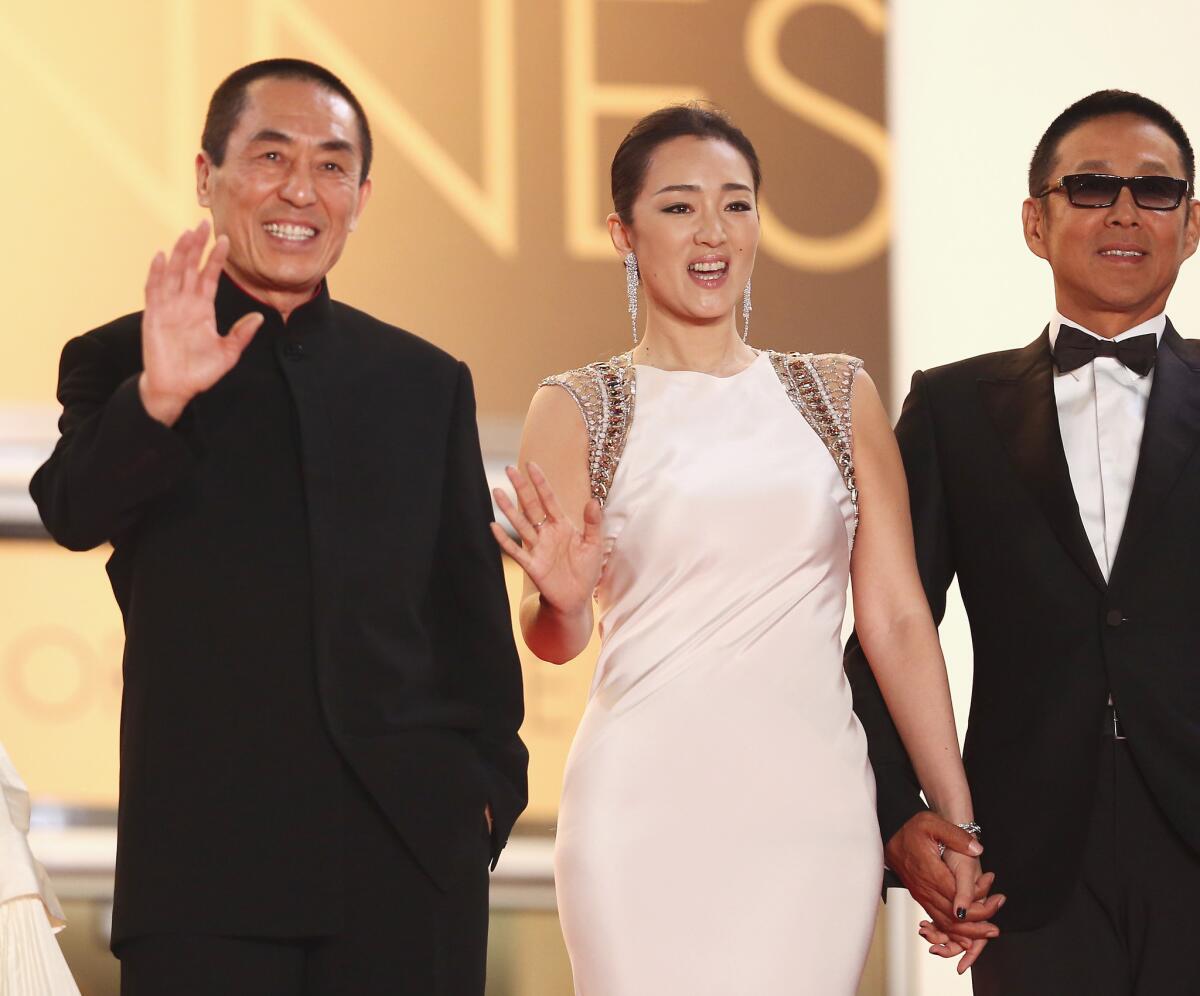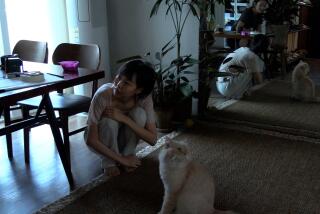Cannes: For Zhang Yimou, a return to roots amid a turn to Hollywood

Zhang Yimou tilts his head in reflection when asked if his new movie, “Coming Home,” a period drama with an amnesiac hook, is a return to more political roots. The film, after all, tells of a couple torn apart by the Cultural Revolution, and it seems to be interested, more than most recent Zhang work, in revisiting postwar China.
“There is plenty that’s political in the movie,” he said via a translator, in his characteristic semi-opaque manner that invites some reading between the lines. The director’s movie had just premiered at the Cannes Film Festival ahead of a U.S. release by Sony Pictures Classics, and he said he intended for his film to grapple with some difficult questions.
“It’s not so much the Cultural Revolution but its aftermath: How do you repair your life and still pay the debt of the Cultural Revolution?”
That tension — between forgetting and commemorating, moving on and holding on — is at the center of the family drama, which reunites the Fifth Generation director with longtime acting collaborator Gong Li. In the film, the actress’ Wan Yu character sees her husband, an anti-Maoist professor named Yan Shi, imprisoned during the Cultural Revolution. When the ignoble period of Chinese history ends and he is released, Wan Yu is mysteriously unable to recognize or remember her husband, leading Yan Shi and the couple’s daughter to try all manner of pleading and trickery to jolt her memory.
It doesn’t take much extrapolation to read the bout of amnesia as a metaphor for the forgetting that happened, by design of the government or self-protection of individuals, in the wake of the Cultural Revolution, not to mention as a microcosm of the debate over the value of reliving the period. Wan Yu is a tragic character in some respects because she’s too traumatized to keep living her life (indeed, believing her husband is still in prison, she travels to the train station one day every month to wait for him), but at least she exists in a kind of blissful ignorance.
Zhang said he kept that question in mind as he directed the movie, whose Zou Jingzhi script is based on Geling Yan’s popular novel. “We say, ‘Don’t try to forget it,’ but we also don’t want to concentrate on it,” the director said. “It’s really about how you find the balance so you can move on.”
As he premieres his latest film, Zhang has reached a strange crossroads in his work and career.
The public debate about his apparent turn away from more hard-core protest pieces — a discussion prevalent after he directed the Olympic Opening Ceremony in 2008, among other moves — has faded somewhat. At the same time, Zhang’s recent films haven’t always had the same degree of overt political content as earlier work such as “To Live,” which premiered exactly 20 years ago at Cannes.
When asked about where he currently finds himself on the subject of ideologically oriented cinema, he said, “I do want to return to political filmmaking. I will go back to my roots. But like the characters in this film, I am not the same as I once was, and I won’t go back to [political films] in the same way.”
Zhang has also pivoted in the direction of the West, working with Christian Bale several years ago on the “Rape of Nanjing” story, “The Flowers of War,” and now is preparing to shoot the Robert Ludlum adaptation “The Parsifal Mosaic” for Universal — the first Chinese mainland filmmaker to helm a Hollywood studio picture.
The movie comes amid the larger context of the shrinking space between East and West, manifest in the movie business as Chinese-American co-productions, which have proliferated with projects such as “Looper,” “The Karate Kid” and “Iron Man 3.” Zhang wonders about the value of it all.
“All of these co-productions now can make China seem like a big piece of pie. That can be good. But you have to be careful it doesn’t become fast food. There have to be story elements that help it make sense, not just co-productions for the sake of coproductions.”
“Parsifal,” then, is a unique opportunity, involving not only a likely shooting schedule in China but featuring a man at the helm inextricably tied to Chinese cinema and familiar with its terrain.
He said he aims to bring that world into the studio realm, not simply with a martial-arts or other convention here and there, but with deeper levels of Chinese exposure.
“My goal is to let Western audiences see what Chinese culture is really about through this film,” he said, adding, “200 million viewers worldwide, that’s tremendously important.”
(He was, however, critical of the release of “The Flowers of War.” “I wasn’t very happy at all. They didn’t do a good enough job of distributing it in the West,” he said of the 2011 film, released by the startup Wrekin Hill Entertainment. “And I don’t understand because Christian’s performance was enough to get more attention.”)
The Universal project, of course, might mean a difficult meshing — auteurs and studios can be a challenging combination even without thousands of years of cultural differences. But Zhang said he’s going in with his eyes wide open.
“I know I’m doing something that’s never been done before. But I’m happy to be the guinea pig and set the new trend. There’s a Chinese expression that you use their water but sail your own boat. I will use their water to sail my own boat.”
More to Read
Only good movies
Get the Indie Focus newsletter, Mark Olsen's weekly guide to the world of cinema.
You may occasionally receive promotional content from the Los Angeles Times.











